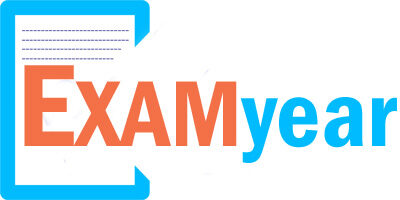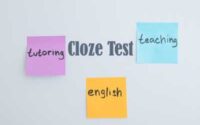Cloze Test Questions and Answers for Bank, SBI, IBPS and SSC
Cloze Test Questions and Answers papers are given in this section. Direct download links for the Cloze Test are here. Hope our Cloze Test study material helps you in scoring marks. Find the direct download link for Cloze Test Question Paper in Pdf in the section below.

What is Cloze Test in English Language?
In some examination to test candidates’ word power as well as English grammatical knowledge a short passage is given with several blanks. This is known as ‘Cloze Test’. Sometimes it is said Rapid Fillers or Sentence Completion. Sometime examiner wants to know candidates vocabulary power or sometimes grammatical knowledge. So, strong vocabulary knowledge is very important to solve the problems. If you don’t know the meaning of given options, it is hard to solve the problems.
How to solve cloze test?
Here we are discussing strategy and tricks to solve Cloze Test. In order to tackle it you should remember a couple of points.
- Read the passage once before you starting filling up the blanks. You need to draw a general idea about the passage. It is very important. Remember that filler should be in the proper context of entire passage, and not merely for individual blanks.
- Fill up the blanks wherever you find it easy after reading the passage carefully. After reading the passage you will get an idea about the theme of passage. Then start to fill the gaps. If blank 1 is confusing skip it and go to blank 2, you may easily get the clue to blank 1. The more you solve, the easier it is to solve the rest.
How do you prepare for a Cloze test?
Before to prepare for Cloze Test in English Language Ability test, you have to keep some points. Cloze test questions are based on Vocabulary or Grammatical. So you have to increase your vocabulary skill and also Grammatical skill. Sometimes all the options given in the exam are almost same in meaning. There you have to choose the appropriate word for that particular passage. So, keep practicing form various books or from online resources. Only proper practice will become your path to success.
Cloze Test Practice Set |
Cloze Test Questions and Answers Papers for All Competitive Exam
Directions: In the following passages there are blanks, each of which has been numbered. These numbers are printed below the passage and against each, five words are suggested, one of which fits the blank appropriately. Find out the appropriate words.
Practice Exercise – 1
Actually every day we are engaged in this business of ‘reading‘ people. We do it ——–1———. We want to figure others out. So we ———2——– make guesses about what others think, value, want and feel and we do so based on our ———-3——– beliefs and understandings about human nature. We do so because if we can figure out ——-4———- and intentions of others the possibility of them ———–5——– or hurting us ———–6——— and this will help us to ———–7——— a lot of unnecessary pain and trouble. We also make second-guesses about what they will do in future, how they will ——–8——– if we make this or that response. We do all this second-guessing based upon our ———-9——– of what we believe about the person’s inner nature ———10——— his or her roles and manners. We mind-read their ————11——– motives.
Also, everyday we misguess and misread. Why? Because of the complexity, ———-12———-, and multidimensional functioning of people. After all, how well do you ‘read’ your own thoughts, aims, values, motives, beliefs, etc? How well do you know your own structuring process — your own thinking and ——–13——— styles?
1. 1) vehemently 2) practically 3) actually 4) incessantly 5) virtually
2. 1) ably 2) constantly 3) partly 4) largely 5) positively
3. 1) futuristic 2) proactive 3) reactive 4) decorative 5) assumptive
4. 1) manifestations 2) expressions 3) motives 4) hopes 5) prospects
5. 1) tricking 2) blaming 3) furthering 4) alarming 5) criticizing
6. 1) lessens 2) happens 3) questions 4) deepens 5) laments
7. 1) approach 2) direct 3) avoid 4) implement 5) prepare
8. 1) solve 2) apply 3) plan 4) approach 5) respond
9. 1) projection 2) exhibition 3) situation 4) prediction 5) attribution
10. 1) organizing 2) underneath 3) appreciating 4) proposing 5) outside
11. 1) cunning 2) visible 3) deeper 4) obvious 5) proposed
12. 1) abnormality 2) angularity 3) focus 4) layeredness 5) contribution
13. 1) proposing 2) developing 3) upbringing 4) lamenting 5) emoting
Practice Exercise – 2
The weaker sections of the rural population are mostly from the socially and economically backward and ——–1———- sections of the village community. Because of their ———-2——— and financial difficulty, they are not readily ———-3——– to change their work habits and adopt modern technology. ————-4——— sure about the traditional methods, they are ———-5———— to take to ——–6———- equipment and techniques which require some time to get accustomed for ——–7——- work.
After holding a number of group meetings with rural people ——–8——— to different vocations and spread over the entire country, we can safely say that persons in the villages are not ——9——— for training to improve upon their traditional and hereditary ———10——— of working.
1. 1) depressed 2) different 3) rich 4) privileged 5) forward
2. 1) ability 2) dependence 3) illiteracy 4) number 5) majority
3. 1) discarding 2) feeling 3) bending 4) undertaking 5) willing
4. 1) Making 2) Having 3) Quite 4) Being 5) Not
5. 1) forced 2) reluctant 3) bound 4) prepared 5) curious
6. 1) farming 2) traditional 3) improved 4) powerful 5) old
7. 1) routine 2) monotonous 3) excessive 4) wasteful 5) effective
8. 1) accruing 2) helping 3) enabling 4) belonging 5) referring
9. 1) eager 2) capable 3) indifferent 4) antagonistic 5) unwilling
10. 1) theories 2) techniques 3) desires 4) hours 5) policies
Exercise – 3
The study of accountancy is ———-1——– in demand in the view of ———–2——— of greater complexity in our business organisation. Formerly a ———–3———- of day-to-day income and expenditure was more than ————–4———. A business organisation today has to ———5——— a clear account of the ———–6———- it uses, the amounts that are owing to it, the amount that it owes to others, the profit or loss it has made and the ————7——— it employs. Without a scientific ———–8———- of accounting no businessman can be fully ————-9———- of his real ———10——— position and run his organisation.
1. 1) progressing 2) getting 3) powering 4) moving 5) growing
2. 1) demand 2) growth 3) status 4) position 5) slackness
3. 1) mixture 2) map 3) measure 4) record 5) transaction
4. 1) sufficient 2) anticipated 3) expected 4) required 5) necessary
5. 1) gather 2) observe 3) maintain 4) organise 5) assimilate
6. 1) manpower 2) infrastructure 3) money 4) resources 5) capabilities
7. 1) capital 2) strength 3) authority 4) strategies 5) principles
8. 1) way 2) plan 3) system 4) goal 5) purpose
9. 1) ignorant 2) alert 3) prepared 4) vigilant 5) aware
10. 1) administrative 2) financial 3) capacity 4) business 5) hierarchical
Exercise – 4
In ———1———– of constitutional guarantees relating to equality of opportunity and various other guarantees of equality before the law, the social and economic ———2——— of women, especially of poor women in India, is well-known. We are referring mainly to the poor rural women who have little or no assets and who ———-3——— the bulk of the female population in rural areas. It is not as if only poor rural women get less wages or suffer from social ————–4——– because they belong to a particular community. Even at higher levels of the socio—economic hierarchy among the well-to-do groups, women are not ————5——- to men. Among the economically ——–6———– sections of society, women’s proper place is ———-7——— to be the home. In rural areas, women of ———-8———– status families normally do not go out to work. In the ——–9———— value system, there is a gradation of economic activities, which is ————-10————- in the socioeconomic status of the family.
1. 1) support 2) spite 3) contrast 4) Wake 5) view
2. 1) condition 2) prosperity 3) progress 4) deprivation 5) value
3. 1) constitute 2) deploy 3) measure 4) define 5) exploit
4. 1) status 2) service 3) indifference 4) ignorance 5) discrimination
5. 1) dedicated 2) accountable 3) equal 4) responsible 5) antagonistic
6. 1) marginal 2) significant 3) well-off 4) affordable 5) dependable
7. 1) entitled 2) decided 3) indicated 4) debated 5) considered
8. 1) economic 2) appropriate 3) ample 4) higher 5) social
9. 1) unequal 2) prevailing 3) appropriate 4) commendable 5) deplorable
10. 1) reflected 2) exempted 3) barred 4) considered 5) neglected
Exercise – 5
In recent years, the banking industry has been undergoing rapid changes, reflecting a number of ————–1———— developments. The most significant has been advances in communication and information technology. Which have ———–2——— and broadened the ——–3——— of financial information while lowering the costs of many financial activities? A second key ———-4——— for change has been the increasing competition among a broad ————5———- of domestic and foreign institutions in providing banking and ——————–6———– financial services. Third, financial activity has become larger relative to overall economic activity in most economies. This has meant that any ———-7———- of the financial markets or financial infrastructure has broader economic ———8——— than might have been the case ———–9———-. These developments have ——–10———- consequences for the institutional and systemic structure of the financial sector in general and banking in particular.
1. 1) challenging 2) subjective 3) situated 4) underlying 5) principled
2. 1) measured 2) motioned 3) habituated 4) processed 5) accelerated
3. 1) concealment 2) disagreement 3) dissemination 4) sowing 5) differentiation
4. 1) force 2) impetus 3) pull 4) movement 5) energy
5. 1) group 2) rank 3) place 4) range 5) row
6. 1) personal 2) relegated 3) related 4) noticed) 5) referenced
7. 1) disruption 2) dissociation 3) shattering t 4) split 5) dissection
8. 1) branches 2) clusters 3) arrangement 4) ramifications 5) subdivisions
9. 1) closely 2) previously 3) timely 4) hastily 5) questioningly
10. 1) stately 2) manifold 3) shrinking 4) applicable 5) functioning
Exercise – 6
Tea prices in the domestic ———-1———– continue to rule high in the ———2——— year despite the expectation of a ———-3——— production as compared to the previous year. According to a preliminary assessment ———-4——— on the weather ————5———- in recent months, tea output in the next year may reach 800 tons as ——–6——– 780 tons last year. During the past three months tea prices have shown an ————7———. Unlike last year when tea prices were dramatically low, this year prices seem to have ———–8———- at rather high level. In the subsequent four months, the ————-9————- average price showed a downtrend, but in September the price has ——–10——— hardened to a considerable extent.
1. 1)market 2) area 3) sector 4) profit 5) production
2. 1) last 2) first 3) current 4) second 5) earlier
3. 1) lower 2) large 3) higher 4) maximum 5) reasonable
4. 1) shared 2) based 3) carried 4) strategy 5) conducted
5. 1) pattern 2) forecast 3) condition 4) outbreak 5) out bursts
6. 1) to 2) per 3) above 4) against 5) compared
7. 1) upgrade 2) uptrend 3) increased 4) increment 5) incline
8. 1) stabilised 2) surfaced 3) increased 4) moderated 5) synchronized
9. 1) annual 2) weekly 3) daily 4) quarterly 5) monthly
10. 1) now 2) then 3) since 4) never 5) again
Exercise – 7
First aid experts stress that ———1———– what to do for an ———2——— victim until a doctor or other trained person gets to the accident scene can ———3——- a life, especially in cases of stoppage of breathing, severe bleeding, and shock.
People with special ——–4———- problems, such as diabetes, cardiovascular disease, epilepsy, or allergy, are ———-5———- to wear some sort of emblem identifying the problem, as a safeguard against administration of medication that might be injurious or even ————–6———–. When emergencies do occur, ———7——– first aid within the first few minutes often —–8——– life or death. ———–9———- administering of first aid ———-10———– medical professionals to provide better care.
1. 1) before 2) attempting 3) regarding 4) knowing 5) about
2. 1) injured 2) inquiring 3) efficient 4) important 5) accidental
3. 1) harm 2) comfort 3) take 4) soothe 5) save
4. 1) mental 2) ethical 3)medical 4) accident 5) moral
5. 1) prohibited 2) invited 3) compelled 4) allowed 5) urged
6. 1) appropriate 2) dangerous 3) beneficial 4) fatal 5) remedial
7. 1) expecting 2) providing 3) avoiding 4) ignoring 5) neglecting
8. 1) determines 2) offers 3) vanishes 4) reflects 5) begs
9. 1) Hasty 2) Careless 3) Proper 4) Probable 5) Reasonably
10. 1) resists 2) instigates 3) hinders 4) prevents 5) enables



